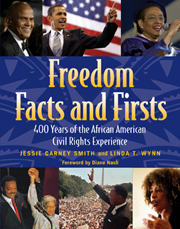
Ella Baker (1903-1986)
Activist
Ella Baker was born on December 19, 1903, in Norfolk, Virginia, to Blake and Georgiana Ross Baker, both educated people who worked hard to educate their children. The family and community in which she grew up instilled in her a sense of sharing and community cooperation.
When she was fifteen, Baker was sent to the Shaw Boarding School in Raleigh. The Shaw school was both a high school and college, and she graduated with a bachelor's degree as valedictorian in 1927. After graduation, she moved to New York City. She quickly became involved in progressive politics and attended as many meetings and discussions as she could find.
In the 1940s, Baker began to work for the NAACP. Between 1940 and 1943, she was a field secretary, traveling all over the country setting up branch offices and teaching people to fight for their own rights; her traveling gave her the opportunity to develop a vast network of contacts in the South that she later relied on when working for the Student Nonviolent Coordinating Committee and Southern Christian Leadership Conference. In 1943, she became the director of branches for the NAACP. During the 1950s, she started fund-raising activities in New York for the civil rights struggles in the South, and in 1958 moved to Atlanta to work with the SCLC.
Working for the SCLC, Baker became disillusioned with the top-heavy, male-dominated organizational structure of the group. In 1960 she quit the SCLC and took a job with the Young Women's Christian Association instead. When students began leading sit-ins, she shifted her focus to the development of the Student Nonviolent Coordinating Committee. She acted as an unofficial adviser for the group, counseling them to set up their own student-run organization rather than be subsumed under the SCLC or the NAACP. She helped launch the Mississippi Freedom Democratic Party that challenged the all-white Democratic delegation at the 1964 presidential convention. She also acted as staff consultant for the interracial SCLC educational fund.
Baker returned to New York City in 1965 but kept working with national and international civil rights organizations. Baker's belief in the power of communal action and reliance on the workers rather than the leaders had an enormous impact. She worked for all of the major civil rights organizations at their time of greatest need. By the time the SCLC and the SNCC were formed, she had almost thirty years of civil rights and community organizing experience to offer. She continually strove to keep the movement people oriented, and she succeeded in helping the SNCC remain a student group. Through her philosophy and actions, she motivated hundreds to act to help themselves and their neighbors as she had learned to do as a child.
From African American Almanac: 400 Years of Triumph, Courage and Excellence by Lean'tin Bracks, (c) 2012 Visible Ink Press(R). A wealth of milestones, inspiration, and challenges met . . .
 |
African American Almanac: 400 Years of Triumph, Courage and Excellence
by Lean'tin Bracks, PhD
A wealth of milestones, inspiration, and challenges met. . .
The most complete and affordable single-volume reference of African...
Read More »
|
ISBN: 9781578593231
$29.95
|
 |
Freedom Facts and Firsts: 400 Years of the African American Civil Rights Experience
by Jessie Carney Smith, Ph.D. and Linda T Wynn
Spanning nearly 400 years from the early abolitionists to the present, this guide book profiles more than 400 people, places, and events that have...
Read More »
|
ISBN: 9781578591923
$44.95
|
 |
Black Firsts: 4,000 Ground-Breaking and Pioneering Events, 2nd Edition
by Jessie Carney Smith, Ph.D.
Black Firsts is a testament to a rich but often overlooked part of our history. Jessie Carney Smith, William and Camille Cosby Professor of the...
Read More »
|
ISBN: 9781578591428
$24.95
|
 |
Black Heroes
by Jessie Carney Smith, Ph.D.
"If there is no struggle, there is no progress," wrote Frederick Douglass. "This struggle may be a moral one; or it may be a physical one; or it may...
Read More »
|
ISBN: 9781578591367
$69.95
|









